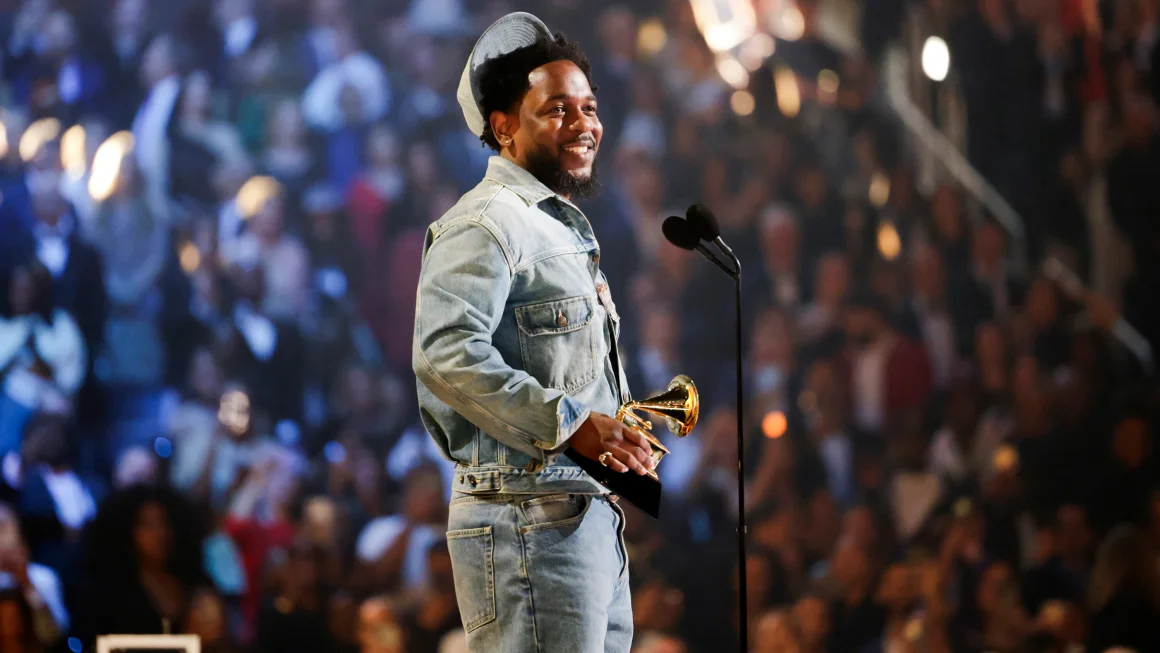
Kendrick Lamar’s journey with his hit single “Not Like Us” has taken an unexpected turn, evolving from a diss track aimed at fellow rapper Drake to a powerful anthem performed at Super Bowl LIX. This transformation highlights not only Lamar’s artistic prowess but also the cultural significance of his music in contemporary society.
The rap feud between Lamar and Drake began to escalate last spring, marked by a series of escalating diss tracks that addressed personal and professional grievances. The rivalry reached its crescendo with Lamar’s release of “Not Like Us,” which decisively positioned him as the victor in their lyrical battle. The song quickly gained traction, topping the Billboard charts and earning Lamar five Grammy Awards, including Song of the Year, reflecting its widespread acclaim.
“Not Like Us” was initially introduced to the world via a simple YouTube link, but it quickly became a cultural phenomenon. Its catchy beat and memorable lyrics resonated with a diverse audience, leading to nearly 200 million views on YouTube and significant play across TikTok and traditional radio. The track’s infectious chorus, “they not like us,” became an anthem for fans far beyond the realm of hip-hop, showcasing Lamar’s ability to connect with listeners on multiple levels.
The song not only serves as a diss but also promotes unity among fans. Frederick Paige, an assistant professor of civil and environmental engineering at Virginia Tech, noted that while the song originated from a competitive standpoint, it has transcended its initial purpose to become a unifying force. This duality speaks to Lamar’s skill in crafting music that resonates emotionally, regardless of its origins.
Lamar’s Super Bowl performance was highly anticipated, especially given the song’s controversial nature and its connection to ongoing legal disputes with Drake. Despite the tension, Lamar chose to include “Not Like Us” in his halftime set, emphasizing its significance to his narrative and his fans. The performance was electrifying, as he teased the song before launching into its most quoted lines, captivating the audience at the Super Bowl, one of the most-watched events on American television.
The choice to feature “Not Like Us” at such a high-profile event raises questions about the role of hip-hop in mainstream culture. Lamar’s music often addresses deep societal issues, including systemic racism and personal struggles, making his inclusion in the Super Bowl a noteworthy moment for representation. The juxtaposition of a diss track and a celebration of culture and identity at the Super Bowl highlights the evolving landscape of music and its impact on broader social conversations.
In addition to its catchy hooks and biting lyrics, “Not Like Us” serves as a critique of inauthenticity in the music industry. By targeting Drake, Lamar challenges the notion of what it means to be a true artist, particularly in a genre that often grapples with issues of authenticity and cultural appropriation. His background in Compton and commitment to his roots provide a stark contrast to Drake’s more commercial approach, making the diss not just personal but also a commentary on the music industry as a whole.
In conclusion, Kendrick Lamar’s “Not Like Us” has successfully transitioned from a diss track to a powerful cultural anthem, culminating in a memorable performance at Super Bowl LIX. This evolution underscores Lamar’s artistry and his ability to connect with audiences on multiple levels. As hip-hop continues to shape cultural dialogues, Lamar’s work exemplifies how music can serve as a vehicle for both personal expression and collective unity.







